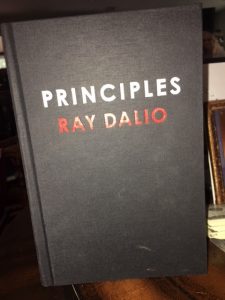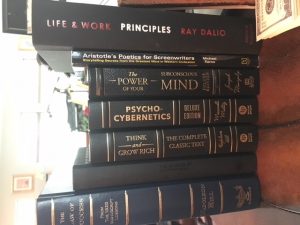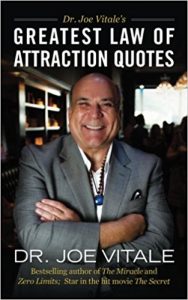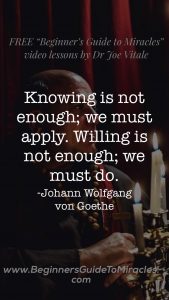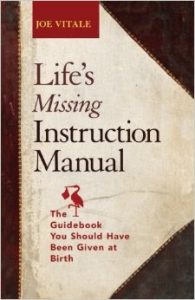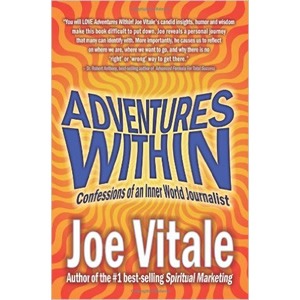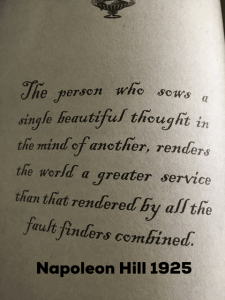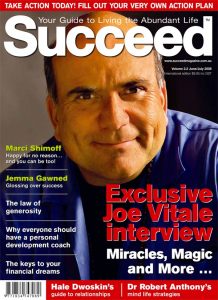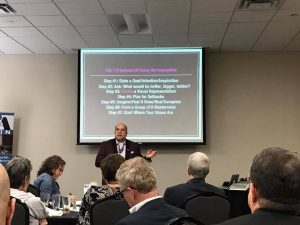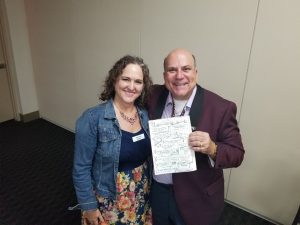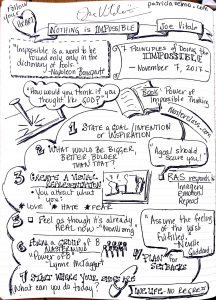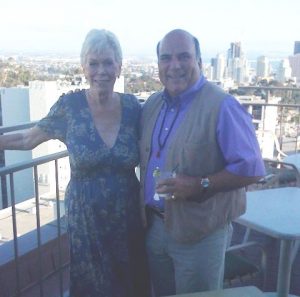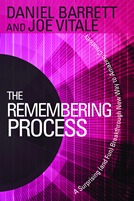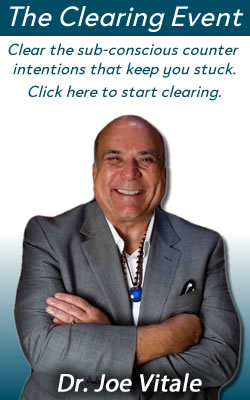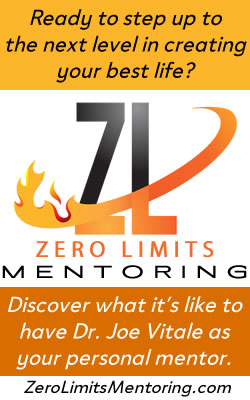Tag: optimism
Principles of Ray Dalio
The best book I read in 2017 was probably Ray Dalio’s Principles.
I say ‘probably’ as I read a bookstore full of books a year, and many get lost in the shuffle of turning pages.
If a book stands out, I tweet about it.
If it really sits up and rolls over, I write a blog post about it.
Dalio’s Principles made the cut for 2017.
I don’t know Dalio personally and actually never heard of him at all before I read his book.
He’s a billionaire entrepreneur and investor. He’s highly respected and successful.
After a lifetime of paying attention to what works in business and life, he compiled his “Principles.”
Apparently they were first put online.
They were downloaded over three million times.
When his book came out in 2017, it went to #1 on the NY Times bestsellers list.
Why did I buy the book when I didn’t know Dalio or his work?
A strong intuitive nudge urged me to preorder it.
Something about the title just said, “Read this next.”
As I’ve learned to do, I acted on that impulse.
And I’m glad I did.
The book is huge at almost 600 pages.
And it’s packed with wisdom.
I felt I was reading a software manual for life.
While Dalio sometimes comes across as a computer programmer, he’s actually more of a keen observer of life. As he finds insights that hold true, he writes them down as Principles.
Underneath Dalio’s drive is a prime directive that basically reminds him that he doesn’t know it all.
But the combined mind power of others could help him see objective reality and make clearer decisions.
At his TED2017 talk, he says, “Rather than thinking, ‘I’m right,’ I started to ask myself, ‘How do I know I’m right?’”
I love this question.
“How do I know I’m right?”
I love it because it’s so easy to deceive ourselves with our own thinking.
We can be illogical and not even know it.
When I coach or consult people, I often hear them say things they don’t hear as limitations. Until they invite outside input, they will continue to believe their own limitations.
It’s because thought is circular until you invite objective input.
Dalio solved this quirk of human nature by creating a way to judge the merit of an idea.
You don’t judge the person or the situation.
You judge the idea.
He calls it idea meritocracy.
Finding the merit of an idea.
One of the most unforgettable passages in the hefty book is when Dalio is told he has to have his esophagus removed.
Remaining as detached as he could, he decides to measure the merit of that recommendation.
He finds four other medical experts.
They all openly share.
They agree to a retest.
The result is Dalio kept his esophagus and changed a few basic lifestyle habits.
But he may have lost it due to the first doctor had Dalio not questioned the merit of his recommendation and been open to other experts opinions.
There’s abundance in this book.
I’ve folded back pages and underlined passages.
There’s no way I can memorize all his material. I have to keep a few basic principles in mind, such as –
“Reality is optimizing for the whole – not for you.”
“Pay attention to people’s track records.”
“Make your passion and your work one and the same and do it with people you want to be with.”
“Train your ‘lower-level you’ with kindness and persistence to build the right habits.”
“Almost nothing can stop you from succeeding if you have (a) flexibility and (b) self-accountability.”
Those principles seem stark and naïve sitting alone on the page.
Of course, those are only a handful of his principles and you’ll need to read his book to understand them.
But the book is friendly, easy, deep, and unforgettable.
Out of the thousands of books I’ve read and still own, only a handful make it to my desk, sitting at arms reach, to be seen or grasped at will.
They include legends, like Napoleon Hill’s Think and Grow Rich and Maxwell Maltz’s Psycho-Cybernectics.
Today I am placing Ray Dalio’s Principles in that little lineup of success classics.
Ao Akua,
Joe
PS – See my “Best Books Ever” list of 2015 at https://www.mrfire.com/law-of-attraction/best-books-ever/ for a sense of the books I read and like.
Are Critics or Criticism Valuable?
Whenever you attempt a new goal, no matter what it is, you have to be aware of critics or criticism.
I’ve had my share of them over the decades.
It used to trouble me, as I didn’t understand how some people could be so negative or hurtful.
But an insight from science helped me.
It came from my favorite science author, Loretta Graziano Breuning. Her book on cynicism, Beyond Cynical, explained that critics have a chemical that goes off in their brain when they criticize someone.
In short, they feel good about themselves because they feel superior to someone else.
This feeling of “one up” comes from a serotonin shot in their brain.
Emmet Fox, a legendary author of metaphysical books, explained, “Criticism is an indirect form of self-boasting.”
When someone puts down you or your idea, it makes him or her feel smarter than you; better than you.
Critics like that feeling.
Loretta’s book, Beyond Cynical: Transcend Your Mammalian Negativity, grabbed me as soon as I read the back cover copy:
“Cynicism feels good because it triggers the brain chemicals that make us happy. It triggers dopamine by making things seem predictable. It boosts serotonin by making you feel superior to ‘the jerks.’ It stimulates oxytocin by cementing social alliances. Cynicism relieves cortisol as you fight or flee in your mind. Negativity is natural, but you can go beyond it if you choose.”
Now criticism makes sense.
Critics spread their negativity not to help others, but to help themselves.
It’s a type of drug addiction.
Only the drug is in their brain.
In other words, critics often criticize simply to (unconsciously) make themselves feel good.
They get a chemical rush in their brain, they like it, and they want more of it.
And thus a critic is born.
But are critics or criticism helpful?
I’m not talking about professional critics.
An employed critic’s job is to review art, movies, books, food, music and such. I’m not convinced they truly help people, but that’s another article for another time.
I’m not talking about inner criticism, either.
Getting past your own “monkey mind” of self-talking negativity is part of the awakening process to achieve your goals. But that’s also for another time and another article.
I’m not talking about invited criticism, either.
Visionary giant Elon Musk of Tesla and SpaceX advises to constantly seek criticism. He says, “A well-thought-out critique of whatever you’re doing is as valuable as gold.”
What I am talking about here are the people who offer their criticism without your asking for it.
These are the people who show up and rain on your parade, before you even begin parading.
They don’t even like the idea of a parade, let alone your own parade.
And they don’t like rain, either.
How do you handle these people?
My rule of thumb is this: when you are starting a path to a goal, don’t share your dream with anyone except those who can help you attain it.
For example:
I have a ten-year-old great nephew who wants to build a car company.
Yes, a car company.
He has ideas for the make, model, name, and more. I’m in awe at his enthusiasm and creativity. I marvel at his ability to dream big, fearlessly and relentlessly. I wasn’t like that at age ten.
I was at a party with him once.
He started to share his auto design ideas with a relative.
But the relative started to bat down and criticize my great-nephew’s ideas.
“That’s been done before,” this critiquing relative told him. “None of your ideas are original.”
This same critic added, “Don’t be afraid of criticism. Welcome criticism.”
The critic’s comments were not helping my great nephew.
They were not practical suggestions.
They were not improvements or refinements.
They were dismissals.
Of course, most ideas have been done before.
The trick is to combine them and reinvent them and extend them so they become something new.
There will always be “new” cars that are “just” refinements of other cars. And some of these new cars will sell well.
So my nephew has as much a chance as anyone to create a car company that succeeds.
Besides, he’s only ten. Let him dream.
I don’t think my great nephew was swayed or stopped by the unsolicited criticism, which is a testament to the fortitude of him and youth.
In fact, when I checked on him later, he was still exuberant about making cars.
He told me, “You’re getting the first one I make, Uncle Joe. It’ll just cost you one thousand dollars for parts and stuff.” (He’s a kid. He has no idea of money yet.)
But not everyone is like that.
Even today, I keep my big goals to myself.
I don’t invite negativity.
I only invite support and input from people who might be able to help me achieve the goals.
You have to protect your dream in the early stages.
It’s much like an unborn child. You don’t want people judging you or it before it is even born.
If you are wanting to start a business, for example, I wouldn’t invite criticism.
Instead, invite people who have acknowledged success in the area of starting a new business.
Ask their advice, suggestions, and input, but not criticism.
I see uninvited critics as people who kill dreamers and dreams.
“If you have no will to change it, you have no right to criticize It.” — Mark Twain
I agree with Twain.
If you have something to offer to help a dreamer achieve their goals, then offer it.
But to condemn, criticize, complain, or any way rain on the parade, or darken a person’s sunshine, isn’t helpful. If that’s all you got, you should remain quiet.
Mark Twain also said, “Keep away from people who try to belittle your ambitions. Small people always do that, but the really great make you feel that you, too, can become great.”
My own policy is to encourage people.
“I have yet to find the man, however exalted his station, who did not do better work and put forth greater effort under a spirit of approval than under a spirit of criticism.” — Charles Schwab
Since I have no idea what the future holds, there’s no possible way for me to accurately predict if any idea will work or not.
So if I see or hear of someone pursuing a dream, I cheer him or her on.
I got the nickname “Mr. Fire” decades ago for this trait of always “lighting a fire” under people to go for their dreams.
Besides, encouraging people lights up my brain.
It’s my brain drug.
It feels good to help, to serve, to encourage.
Goethe said, “Correction does much, but encouragement does more.”
I’ve found being encouraged a type of fuel for my success.
Actor Kevin Bacon said, “A good director creates an environment, which gives the actor the encouragement to fly.”
When I was filming my first acting role, the director (Liz Tabish) made me feel safe and encouraged me.
As a result, my first starring role in an indie movie was easy and fun.
And according to the early reviews of Cecilia, I did pretty well, too.
In the end, you have to follow your dreams to feel fully alive, despite encouragement or criticism.
Of course, at some point you have to complete your project and release it to the world.
And that’s when you can expect critics and criticism.
When I was recording my first album back in 2012, a musician friend warned me, “Gird your loins! When you release your music, everyone will slam it. Just remember there are people who don’t like the Beatles, and I think they were gods.”
A friend of mine once said that “success breeds contempt.”
It helps explain why so many of my friends turned against me when my levels of success started to escalate beyond the sky.
It stirred the critics.
My point here is to keep your plans to yourself until they are complete.
And after that, remind yourself that there will always be critics.
“Do what you feel in your heart to be right–for you’ll be criticized anyway. You’ll be damned if you do, and damned if you don’t.” — Eleanor Roosevelt
Life is really about pursuing your own passions and purpose, despite the odds and the critics.
Whatever your goal, whether to attract money or health or a relationship or some big audacious dream, there will always be people who will say you can’t do it, or explain why it won’t work.
“Any fool can criticize, complain, and condemn–and most fools do. But it takes character and self-control to be understanding and forgiving.” — Dale Carnegie
Just remember that critics are drug addicts.
They get high on putting down others.
So understand them and forgive them.
And also realize there are always people who will cheer you on, believe in you, support you and encourage you.
“The key is to keep company only with people who uplift you, whose presence calls forth your best.” ~ Epictetus
Look for those cheerleaders in your life.
Surround yourself with them.
And let the critics criticize and complain.
Stay too busy going for your dreams to even notice them.
To quote author Elbert Hubbard, “The final proof of greatness lies in being able to endure criticism without resentment.”
‘Nuff said.
Ao Akua,
PS – You can find clarity and support in my Miracles Coaching program.
Doing the Impossible
The other day I revealed “7 Steps to Doing the Impossible” at the Austin chapter of the National Speakers Association.
While no one recorded it (big mistake on my part), I thought you might like to see these photos and this mind-map.
The note-map was made on the spot, as I spoke, by attendee Patricia Selmo. She was kind enough to let me share it here with you.
With her notes, and your mind, you ought to be able to figure out the seven steps. Eventually they’ll be in a book I’m writing on “Anything Is Possible.” Enjoy.
Law of Attraction Quotes
I love Law of Attraction quotes, inspiring and motivational quotes, and just any quotes that make me think.
Some of my favorite quotes include –
“Be the change that you wish to see in the world.” – Gandhi
“Darkness cannot drive out darkness: only light can do that. Hate cannot drive out hate; only love can do that.” – Martin Luther King, Jr.
“Amateurs sit and wait for inspiration, the rest of us just get up and go to work.” – Stephen King
“There are only two ways to live your life. One is as though nothing is a miracle. The other is as though everything is a miracle.” – Einstein
But I never thought people would be quoting me so much over the last thirty years that my quotes would end up in a book.
Well, meet Dr. Joe Vitale’s Greatest Law of Attraction Quotes.
This new book contains more Law of Attraction and related quotes than I want to count. Some of these have been tweeted and retweeted numerous times all over the Internet.
Some of the most popular are:
A goal should scare you a little, and excite you a lot.
We live in a belief-driven Universe. Change your beliefs and you change your Universe.
Your wealth is hiding under the very thing you are afraid to do.
Whatever you say after “I am” defines who you become.
The Universe loves speed.
Of course, when you keep working on yourself, you keep growing. As a result, some of my quotes from my early years seem like contradictions to quotes from more recent years.
They don’t contradict; they compliment.
They are simply spoken from different “grades” of life.
Early on I said –
Intentions rule the Earth. It causes the Universe to rearrange everything and everyone around you to help you fulfill your intentions.
But more recently I’ve said –
Intention is not as important as inspiration. Intention is a toy of the mind; inspiration is a directive from the Divine.
Of course, both quotes are true.
The most relevant one to you will depend on what level of consciousness you are currently on.
My staff had fun collecting these quotes from my books, recordings, and speeches. After they compiled them all, they split them into groups, by topic, so you could easily find quotes when you needed them.
But another way to use this book is called bibliotherapy.
In short, open the book anywhere and let the quote your eye lands on be your guiding thought for the day.
I’ll open the book anywhere right now and quote what I see:
Passion is the ticket to success. Follow your passion and you’re on the road that’s right for you.
That quote works for me.
Or, another way you can practice bibliotherapy is, hold a question in mind, and then open the book anywhere. Wherever your eye seems drawn to a quote on the page you opened to, treat it as a message from the Universe and meditate on it.
You are making the book a sort of oracle.
For example, I’m going to be recording some video lessons later today for a new product. What might be something I can do to make the videos the best I can make?
I open the book at random and see –
It’s not the thing you want. It’s the feeling that it gives you.
That answer seems to tell me that instead of focusing on an end result with the video I’ll record, focus on how I want to feel when the video is recorded.
That’s smart and useful advice, even if I am quoting myself.
For the fun of it, here are a few more quotes from the book, taken at random:
You can attract what you want faster if you don’t need it.
Your perception creates your reality. You can look at life and see scarcity or abundance. It depends on your mindset.
The new secret to manifesting your goals is to: Have fun. Keep smiling. Be playful. Stay grateful.
This Law of Attraction quote book might make a good holiday gift for family and friends since, after all, the holidays are coming up and you’ll need something to give. 🙂
In fact, here’s a quote on giving from my book:
When you give anything, you tap into a higher spiritual law. You have little to do but give, wait, and receive.
And you can quote me on that.
Ao Akua,
PS – Dr. Joe Vitale’s Greatest Law of Attraction Quotes is available in paperback or for any Kindle reader. Just go to https://smile.amazon.com/Greatest-Law-Attraction-Quotes-Vitale-ebook/dp/B075VMFRLN/
Loving Louise Hay
Self-help legend Louise Hay passed away the other day, on the morning of August 30, 2017.
She was 90, and made the transition peacefully in her sleep, at her home.
She influenced millions with her books, including me.
One of the highlights of my life was having dinner with her about ten years ago.
She openly shared her life, mission, and home with me.
She said, “The more people you help, the better your life will be.”
Her first book, Heal Your Body, was privately published by her in 1976 – when she was 50 years old.
That “little blue book” went on to become a self-help classic.
She bought me dinner and we talked about everything from The Secret movie to Jerry and Esther Hicks and Abraham to Operation YES, my movement to end homelessness.
She showed interest in my life and work.
She asked questions.
She listened.
Back in her San Diego home, she gave me so many signed copies of her books that I began to feel uncomfortable.
“What’s wrong?” she asked. “Do you have a problem receiving?”
I got over it.
I opened my arms to receive more.
She was loving and lovable.
She was warm and wise.
She will live forever in her books and through her company, Hay House.
I am forever grateful to her, and will always miss her.
Thank you, Louise.
I love you.
Ao Akua,
PS – A few years ago Louise Hay’s company published the book I coauthored with Daniel Barrett, The Remembering Process, which remains a milestone in my career.
Watch Louise Hay in action here:

